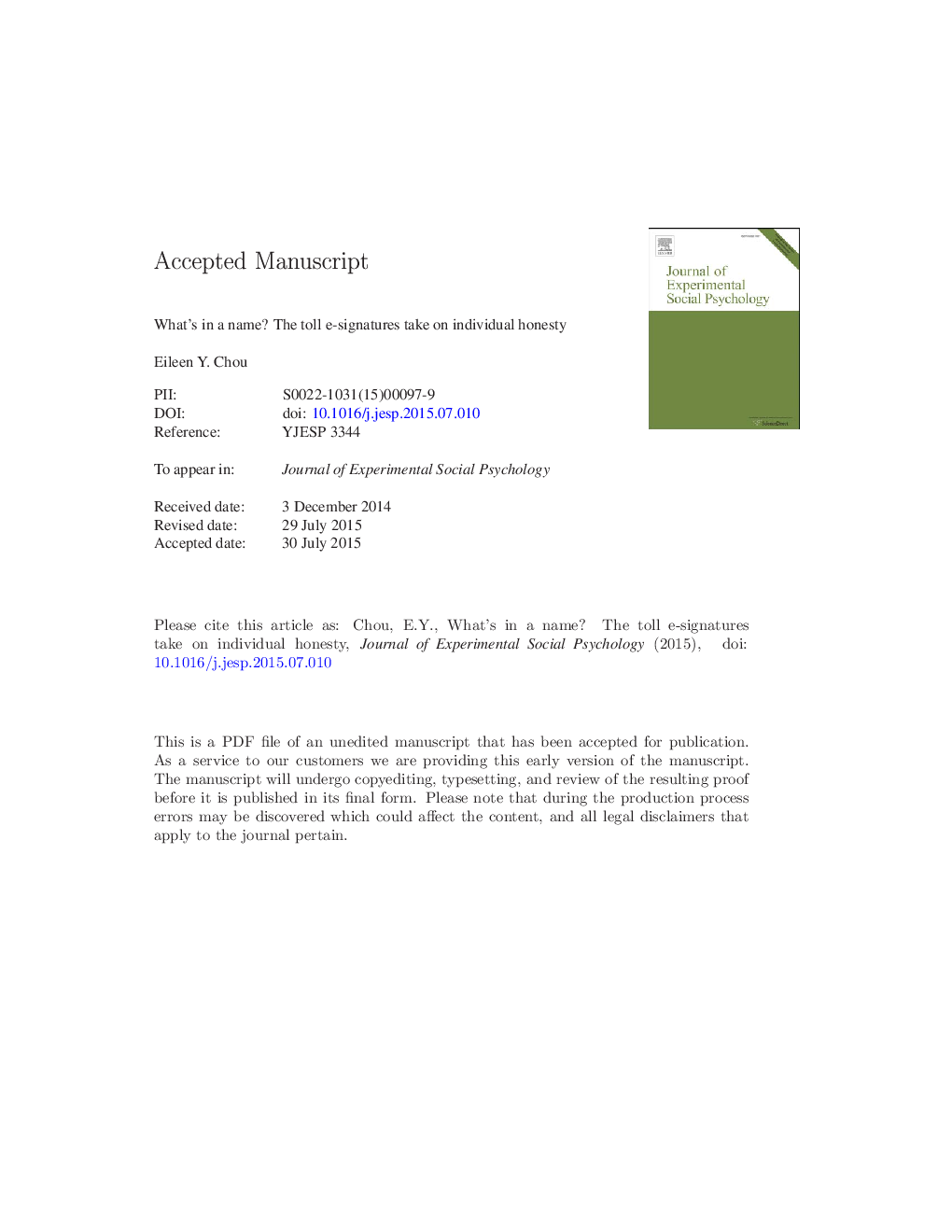| Article ID | Journal | Published Year | Pages | File Type |
|---|---|---|---|---|
| 7324456 | Journal of Experimental Social Psychology | 2015 | 52 Pages |
Abstract
People cherish and embrace the symbolic value that their unique handwritten signature holds. Technological advances, however, have led organizations to reject traditional handwritten signatures in favor of the efficiency and convenience of e-signatures. This research directly investigates the possibility that while many common e-signatures may objectively perform the same function as signing by hand, they do not exert the same symbolic weight in subsequent decision making. Seven studies consistently demonstrate these e-signatures' ineffectiveness for curbing individual dishonesty-one of the essential purposes of a signature. Furthermore, the effects are caused by their inadequate ability to evoke the signer's self-presence. Results also identify one form of e-signature that can preserve this crucial psychological connection. Meta-analyses across studies conducted for this research establish the reliability and robustness of the associations between common forms of e-signatures, self-presence, and dishonesty. By systematically examining whether, why, and which e-signatures abet cheating, findings illuminate an unexplored-but critical-consequence of a practice that is prevalent worldwide.
Keywords
Related Topics
Life Sciences
Neuroscience
Behavioral Neuroscience
Authors
Eileen Y. Chou,
